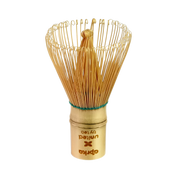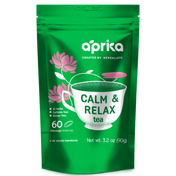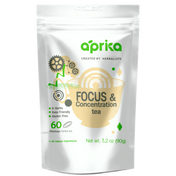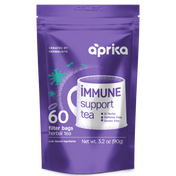If you believe everything that tastes good has to be bad for you, you’ve never tried matcha green tea. Matcha is the finely ground powder made from green tea that you’ve seen in everything from Starbucks latte ads to Pinterest recipes for tiny, seafoam-colored cookies and proves that green is the new gold. But does it actually live up to the hype or is this just another passing health food craze? Let’s find out!

Did you know Matcha green tea contains antioxidants five times more powerful than acai berries, six times more powerful than dark chocolate, 12 times more powerful than green tea and 14 times more powerful than blueberries? Catechin, the organic compound that the tea is composed of, is responsible for its superfood status. Below are the all-natural benefits found in matcha tea at a glance:
- Boosts metabolism
- Increases energy
- Burns fat
- Enhances immune system
- Increases mental clarity
- Boosts cognitive function and memory
- Detoxifies the body
- Improves heart health and good cholesterol
Matcha Benefits for the Body
One cup of matcha tea has 100 times more of the EpigallocatechinGallate (EGCg) antioxidants than regular green tea. Antioxidants are a common buzzword associated with health, and here’s why: Antioxidants help protect your body from free radicals, the byproducts of UV rays, microwaves and even the radio waves that come from our mobile devices. These free radicals damage our cells and cause aging, certain diseases like alzheimer's and have even been linked to cancer. Additionally, matcha is an excellent fat burner. It’s thermogenic properties boost your metabolism and can cause your body to burn fat up to 40% more, without negative side effects.
Matcha Benefits for Skin
Turns out, matcha’s benefits can be experienced from the inside out. You use the powder to make several DIY matcha skincare recipes. The antioxidants support production of collagen, the protein in your body that gives your skin its youthful elasticity. It’s also an anti inflammatory, which helps reduce redness found in rosacea and dry skin. And lastly, it slows down production of oils in your face, making it an effective at-home acne treatment.

Who would have thought this little plant could be so powerful? But, the story of matcha doesn’t stop there. Its potency has sparked popularity in recent years, and as a result, more matcha brands keep appearing on the shelves. Unfortunately all matcha is not created equal, but there are specific factors to look for, and we’ve broken down the basics to help you identify good matcha vs bad matcha








